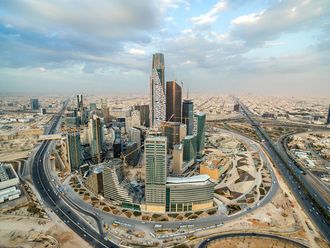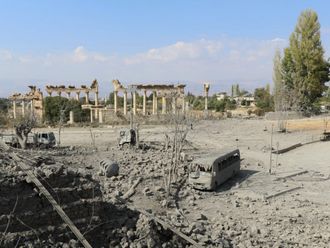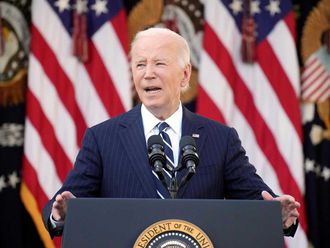Riyadh - Saudi Arabia will give its impoverished neighbour Yemen aid worth $3.25 billion (Dh11 billion), Saudi Foreign Minister Prince Saud Al Faisal told a meeting in Riyadh on Wednesday, urging other nations to take similar steps.
“To ensure Yemen’s security and stability, the kingdom will provide $3.25 billion to support development projects there which will be agreed upon with the Yemeni side,” he said at the opening of the Friends of Yemen meeting.
Courageous
“The Yemeni government is exerting courageous efforts, but without the help of its brothers and friends, Yemen will not be able to solve the crises it is facing,” said Prince Saud.
Yemeni Prime Minister Mohammad Basindawa urged at the meeting for aid for his country which was rocked by an uprising last year that forced former strongman Ali Abdullah Saleh to step down in February.
“The hope is in the political and economic support needed to overcome the transitional period and put an end to the budget deficit,” Basindawa said.
“We are confident that you realise the danger and sensitivity of the situation in Yemen which needs lots and lots to recover... We seek your help, don’t fail us.” Basindawa said.
Yemen is expected to ask donors for about $10 billion in urgent aid at the one-day meeting.
'Catastrophic food crisis'
Seven aid groups on Wednesday warned international diplomats that Yemen was on the brink of a “catastrophic food crisis” and urged them to bolster efforts to salvage the situation.
“Yemen is on the brink of a catastrophic food crisis,” the seven agencies which include Oxfam, CARE and Save the Children, said in a joint statement released ahead of Wednesday’s meeting.
At least 10 million people, some 44 per cent of the population, do not get “enough food to eat”, they said, adding that one in three children was “severely malnourished.”
Twenty-seven countries, including the six oil-rich Gulf Cooperation Council states, the United States and Britain, as well as international organisations, are attending the Riyadh meeting.
The meeting is the first since Yemen embarked on a transitional period after the election on February 21 of President Abdrabuh Mansur Hadi to replace Saleh, who had ruled the country for 33 years.
Growing threat of Al Qaida
In addition to poverty, Hadi’s rule is challenged by a growing threat of Al Qaida in the Arabian Peninsula — the network’s Yemen branch— considered by the United States as the most active branch of the global terror network.
On Monday, a suicide bomber dressed as a soldier, detonated his explosives in an army battalion killing 96 soldiers in a brutal attack in central Sana’a.
AQAP claimed responsibility for the attack which it said was to avenge an army offensive launched on May 12 to free a string of jihadist-held towns in the southern Abyan province.
Hadi is to serve for an interim two-year period under a Gulf-brokered transition plan signed by Saleh in November. Saleh remains the head of the long-dominant General People’s Congress party.
The Friends of Yemen forum was set up at an international conference in London in January 2010 to help Sanaa combat a resurgent threat from Al Qaida in the ancestral homeland of its slain leader Osama Bin Laden, as well as other security challenges.
In March, German Foreign Minister Guido Westerwelle pledged €265 million (Dh1.2 billion) in aid to Yemen during a visit to the impoverished Arabian peninsula country, state-run Saba news agency said.










